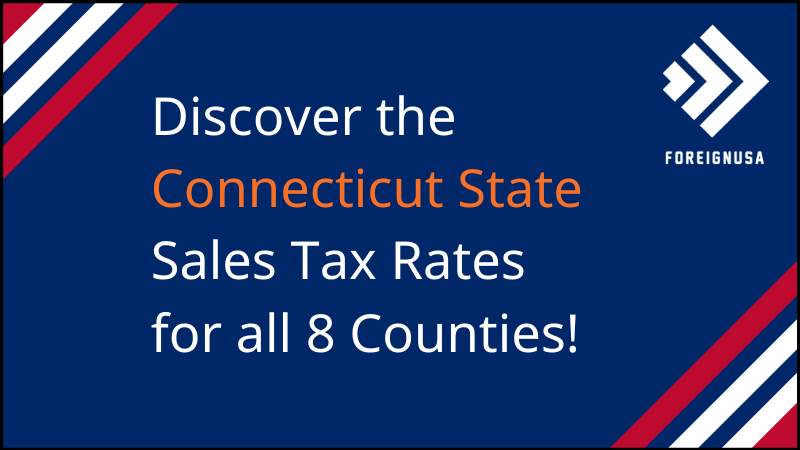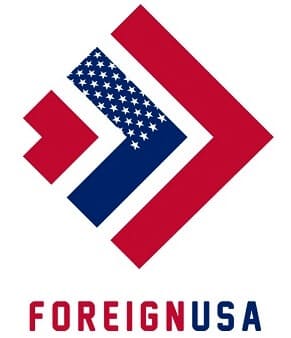The base Connecticut sales tax rate is 6.35%, and this applies to the whole state. Many other states will charge the state sales tax rate, along with the rate of sales tax imposed by counties, cities, towns, and districts. However, this is not the case for Connecticut, there is one sales tax rate that will be paid by consumers and collected by businesses within the state.
The Connecticut sales tax rate is similar to other states’ sales tax in the sense that business owners are responsible for collecting and remitting the sales tax they collect from customers to the Connecticut Department of Revenue Services.

Connecticut Sales Tax Rate = 6.35%
Any retail store, gas station, convenience store, or restaurant-related business responsible for selling tangible goods or some services that qualify for sales tax should be charging you, as the consumer, the prevailing Connecticut sales tax rate of 6.35%
While paying sales tax is mostly applicable to the sale of products, it may also apply to certain service-related businesses, such as janitorial services, landscaping services, car washes, lobbying services, consulting services, and radio, television, and auto repair services to name just a few. If you are unsure whether your business qualifies for collecting Connecticut sales tax, you should visit the Connecticut Department of Revenue Services to clarify and see what services are subject to Connecticut sales tax.
As a business that is responsible for collecting sales tax from your customers, it is hugely important to understand exactly what your responsibilities are. These include where you need to remit your businesses collected sales tax to, following the rules of Connecticut’s sales tax collection, and ensuring that you are paying the state of Connecticut the correct sales tax you collect in a timely manner.
This also applies to specific online businesses too. If you are a participant of the Amazon FBA program or have an online business with the majority of your sales taking place in Connecticut, you may be subject to sales tax collection. Amazon.com is building a fulfillment center in Connecticut, this physical presence (Nexus) within the state, ensures a sales tax obligation for Amazon and some sellers participating in the Amazon FBA program. This is why it is crucial if you are unsure to check the guidelines for online business owners on the Connecticut Department of Revenue Services website.
Connecticut Sales Tax
The only Connecticut sales tax is 6.35%. So, unlike the majority of other states, there is one rate for all counties, towns, cities, and districts within Connecticut, meaning you will only pay one rate as a consumer or collect 6.35% Connecticut sales as a business. Regardless of this, we have created a table below that lists the Connecticut sales tax rates for each county within the state as a clear and concise reference of the eight counties within Connecticut.
So, when you checkout your items in a store or request the bill at a restaurant, you will likely pay the price you saw on the tag or menu + state sales tax. This often takes foreigners and those not used to this system by surprise because, in many other countries, the price you see is the price you pay, and the price quoted includes any sales tax or value-added tax (VAT).
Connecticut State Sales Tax
As a business owner, you must be aware that any sales tax collected from Connecticut’s residents or those visiting the state belongs to the Department of Revenue, meaning that you are entirely responsible as a business owner who collects sales tax to manage the amount of tax you collect and remit to the Department of Revenue Services, which will result in avoiding any penalties and accumulative interest.
There is a specific terminology surrounding whether, as a business, you need to collect Connecticut state sales tax. This is called “Sales Tax Nexus.” It basically means, does your business have a “significant presence” in the state. It used to be that sales tax nexus only applied to businesses with a physical presence in the state, such as having employees, an office or warehouse, or retail store.
Any of the following criteria may be considered by the state of Connecticut as qualifying a seller/business to have Connecticut state sales tax nexus:
- An office or place of business.
- An employee present in the state for more than 2 days per year.
- Goods in a warehouse.
- Ownership of real or personal property.
- Delivery of merchandise in Connecticut of vehicles owned by the taxpayer.
- Independent contractors or other representatives present in Connecticut for more than 2 days per year.
If you sell through the Amazon FBA program, you will likely have products stored in one of the two Connecticut Amazon fulfillment centers. If you are unsure whether your business stores its products in an FBA warehouse you will have to log into your Amazon Seller Central control panel and pull up your inventory report, which will let you know the locations that your products are stored in.
If your sales tax liability (funds collected from customers to be distributed to the state) was under $1,000 for the previous year, beginning July 1 of every year and ending on June 30, the Department will notify you in writing that you are being changed to annual filing status. This means that you, as a business, will have to file your sales tax collection on the last day of January for the previous calendar year’s sales.
If your sales tax liability is over $4,000 for the previous year, beginning July 1, and ending June 30, the Department will notify you in writing once again, this time letting you, as the business know that you will have to pay your sales tax collected on a monthly basis. The due date for monthly sales tax returns is the last day of the following month.
The table below lists the 8 Connecticut counties that charge sales tax within the state. These counties do not charge an excess amount of tax that is on top of the base Connecticut state sales tax rate of 6.35%.
| Connecticut Sales Tax Rates by County | Total Connecticut Sales Tax Rate | Connecicut State Sales Tax Rate |
|---|---|---|
| Fairfield County Sales Tax | 6.35% | 6.35% |
| Hartford County Sales Tax | 6.35% | 6.35% |
| Litchfield County Sales Tax | 6.35% | 6.35% |
| Middlesex County Sales Tax | 6.35% | 6.35% |
| New Haven County Sales Tax | 6.35% | 6.35% |
| New London County Sales Tax | 6.35% | 6.35% |
| Tolland County Sales Tax | 6.35% | 6.35% |
| Windham County Sales Tax | 6.35% | 6.35% |
Connecticut Department of Revenue Services Contact Details
Most communication with the Connecticut Department of Revenue Services can be conducted through their online services which are available 24/7, or via telephone which is possible between the hours of 8:30 am – 4:30 pm (Eastern Time) Monday through Friday (except US holidays).
The Connecticut Department of Revenue Services has several methods of communication, most of which are done electronically through their website, email, or telephone. Here are the main contact methods and addresses for when you are able to visit the Departments directly:
Here is the main address for the Connecticut Department of Revenue Services:
Main Office
450 Columbus Blvd.,
Hartford, CT 06103
Bridgeport Office
10 Middle Street,
Bridgeport, CT 06604
Norwich Office
401 West Thames Street, Building #700,
Norwich, CT 06360
Waterbury Office
55 West Main Street, Suite 100,
Waterbury, CT 06702
Mailing Address
Department of Revenue Services
450 Columbus Blvd., Ste 1
Hartford, CT 06103
If you would like to email the Connecticut Department of Revenue Services, you must find the specific email address for the sales and use tax department within their website.


